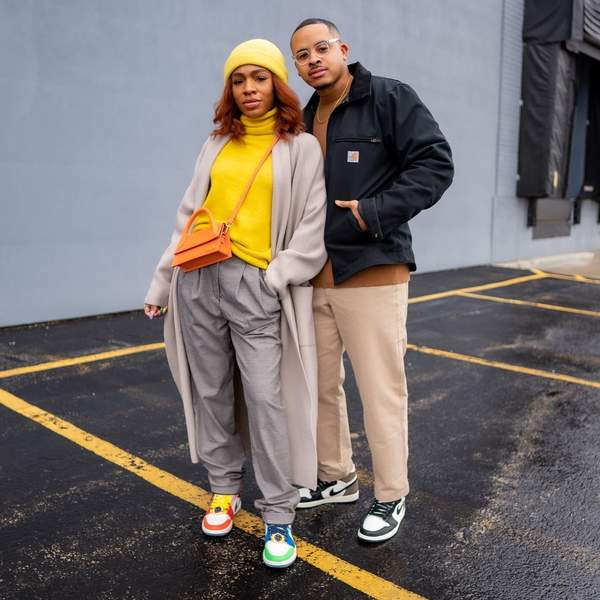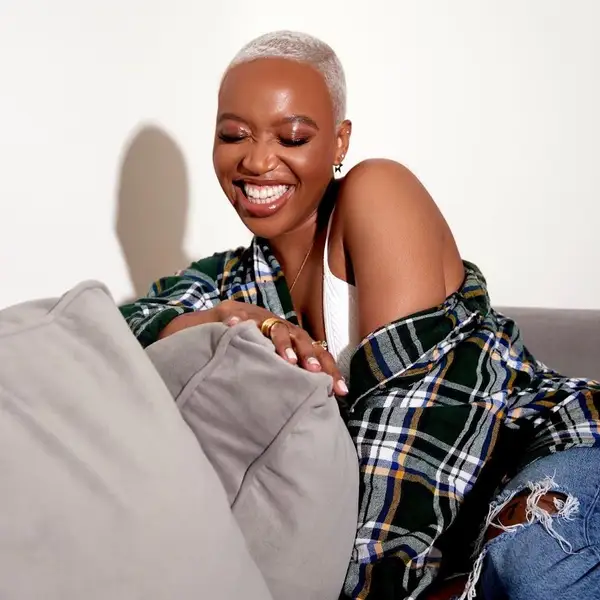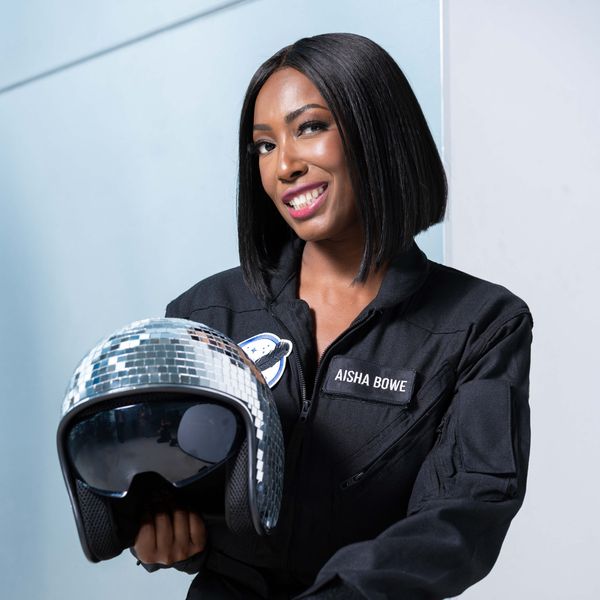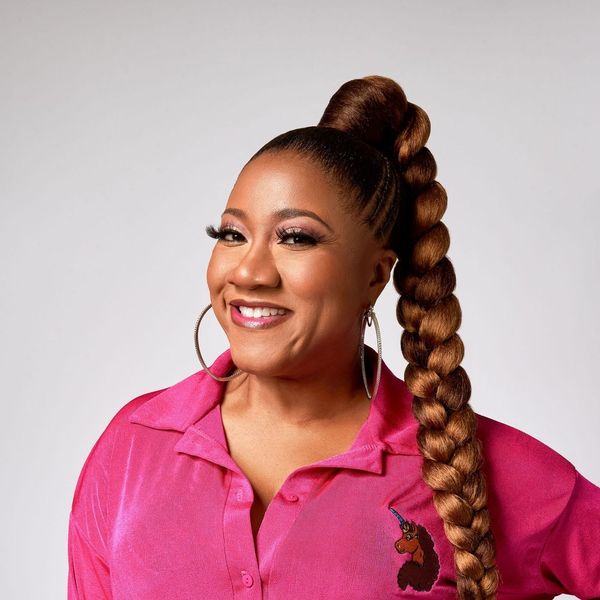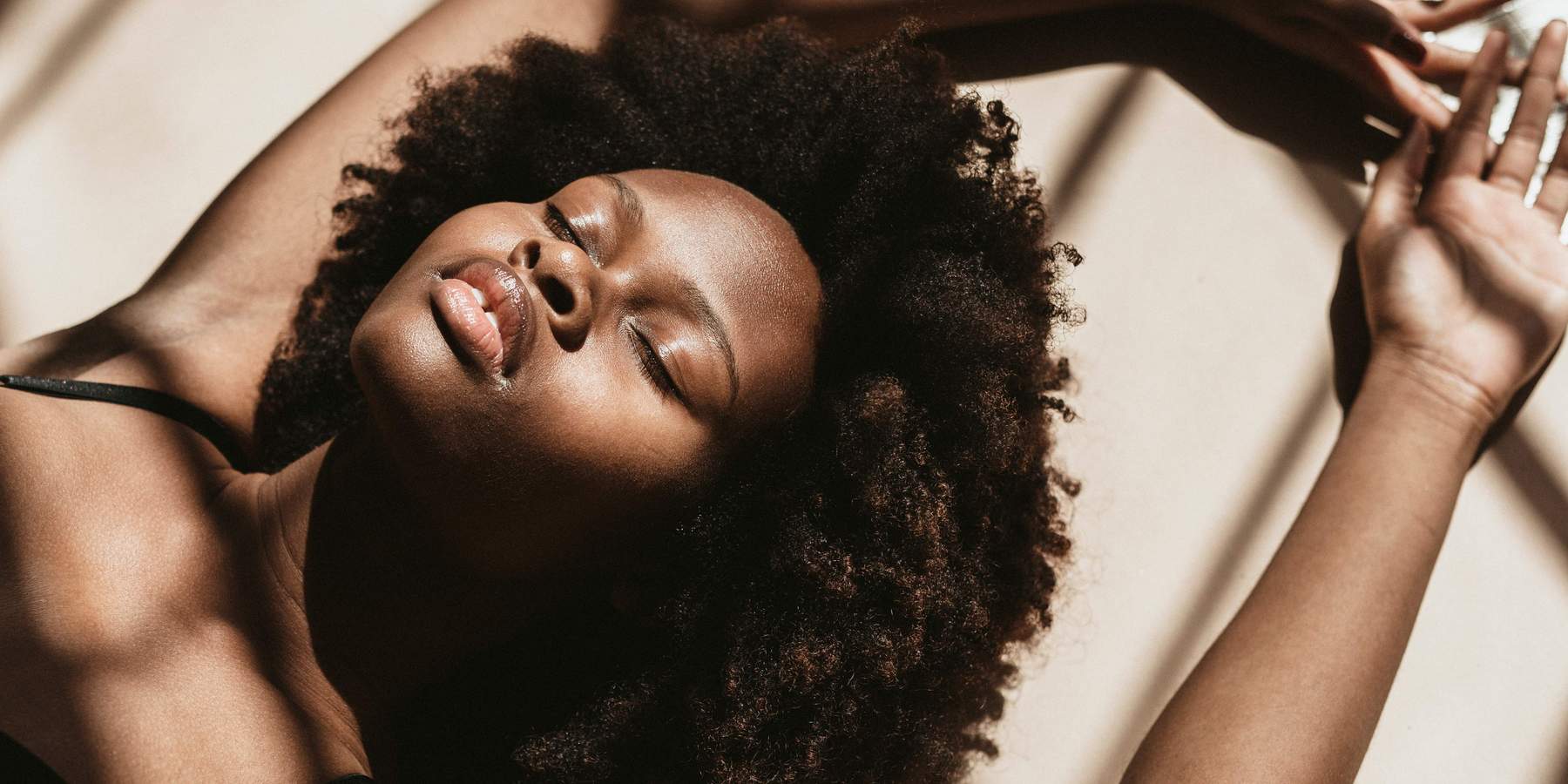When we imagine arranged marriages in the traditional sense, our minds may trail off into stereotypes that reflect reluctant brides, invasive parents, with two coerced individuals, doomed to suffer in a loveless union. Not so romantic, right? But arranged marriages are not to be confused with forced marriages. See, the former centers the autonomy of choice: with two consenting adults, choosing to pursue one another for a lifetime - even after the allure of their parent's wise counsel fades. This was the case for content creators, Cam and Vicky Logan; who after 7 years of marriage illustrates what can happen when the potential for love is offered and accepted.
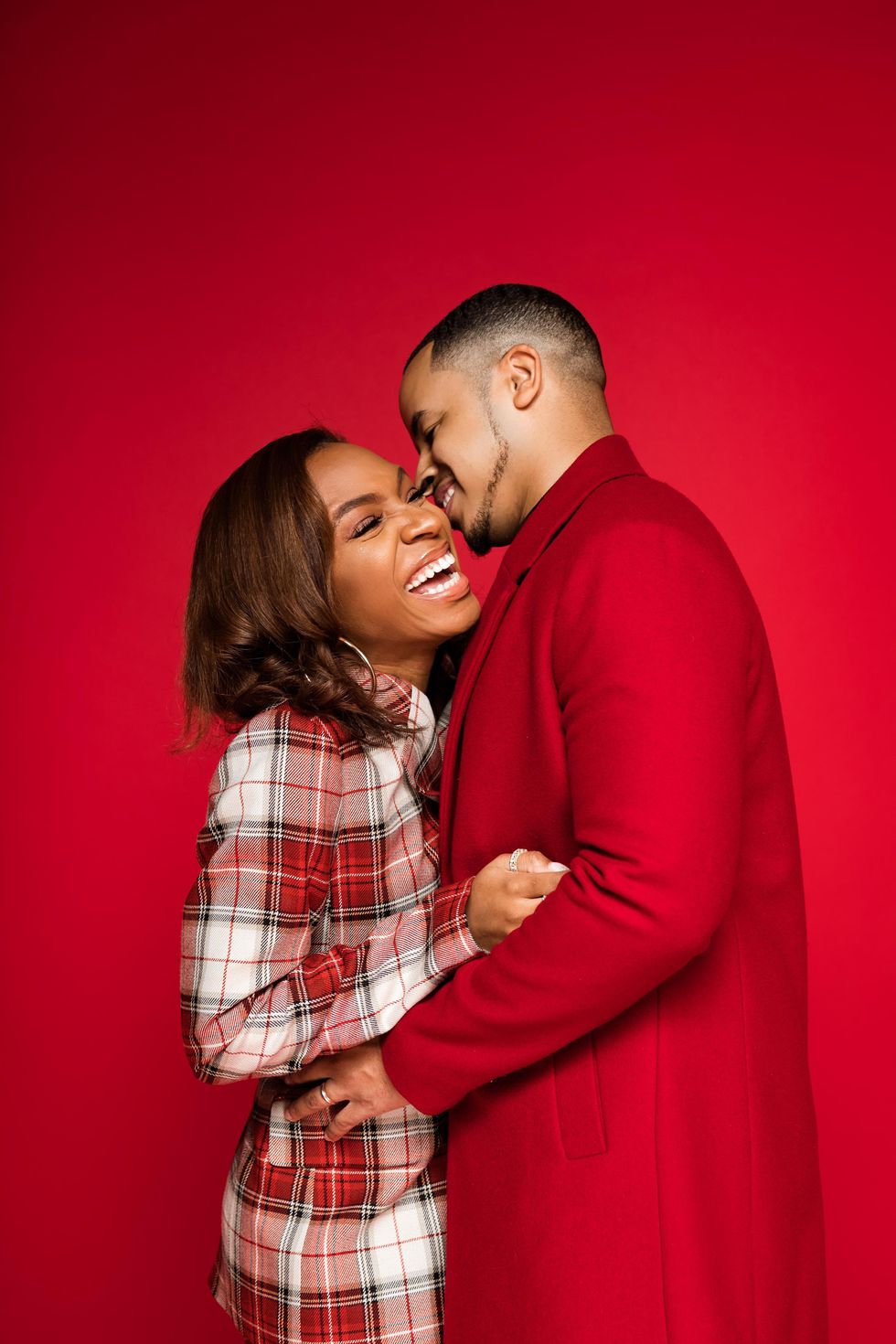
Courtesy of Vicky Logan
Cam and Vicky's parents were friends before the two of them ever met. Follow me: Vicky's father was celebrating his 40th birthday and invited Cam's father; it was there that Vicky met Cam's dad. Soon after the party, both sets of parents suggested that the two should meet, so Cam and Vicky started by adding each other on Facebook. Initially, there weren't any sparks that ignited their correspondence. In fact, Vicky shares that she never intended on dating someone who shared the same "Preacher's Kid" background that she grew up in, being that both her mother and grandmother were wives of preachers.
"I wanted a different experience and I knew how much work it would take," she shares. But what she didn't know was how God would use her expert-level background as preparation for the marriage awaiting her, "The joke was on me because since I knew how much it would take, it was just preparing me for doing the work with Cam."
Although reluctant at first, answering the call allowed her to step deeper into her purpose in becoming a helpmeet, which for Cam, was an answered prayer, "Growing up as a preacher's kid, various girlfriends didn't understand my necessity to be at church all the time, it's part of my life. As I got older and matured, I knew I needed someone that was going to understand this life in ministry and when I found out that she was a PK too, things started going off in my head like, 'Oh, this could work.'"
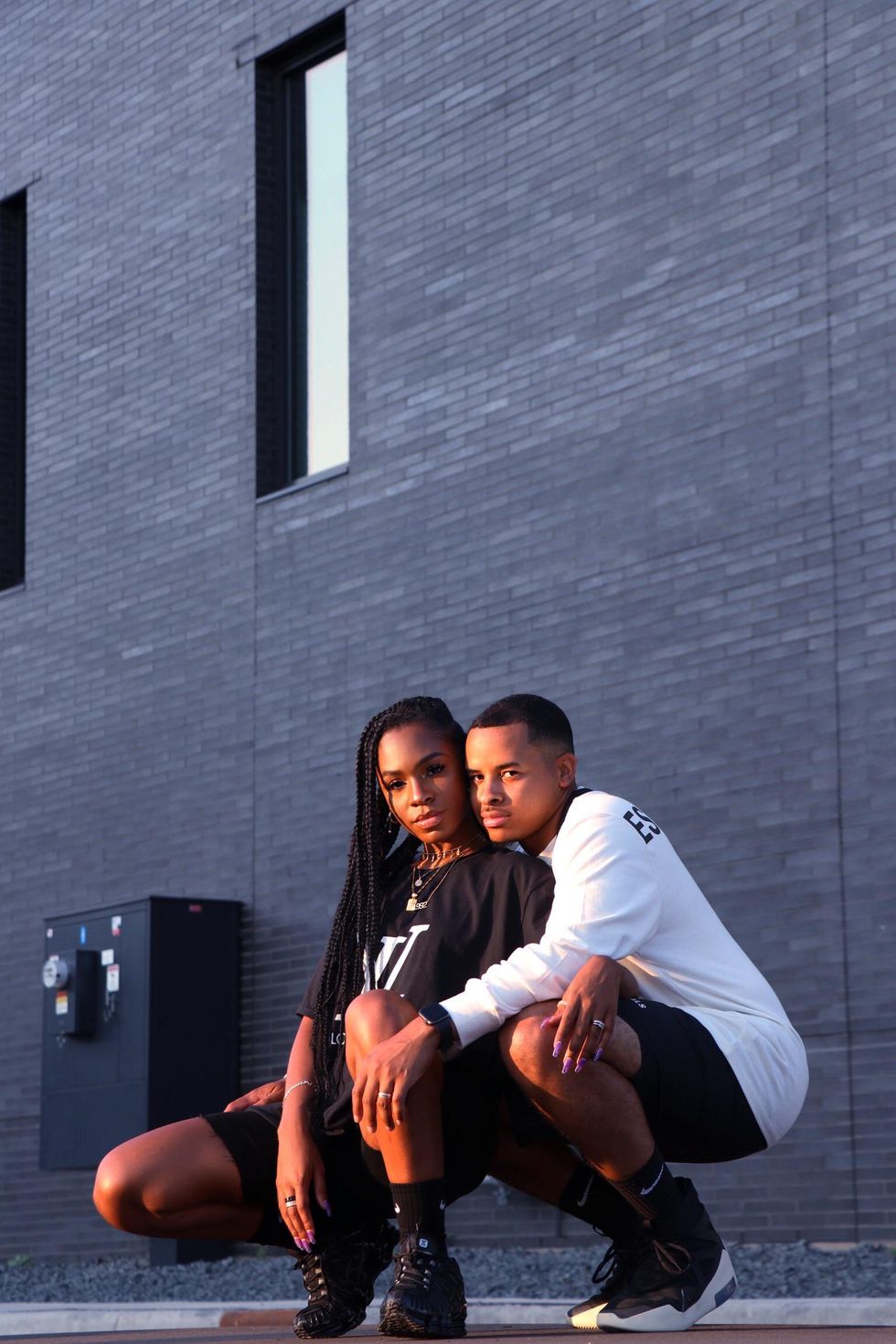
Courtesy of Vicky Logan
Their friendship grew even as the miles separating them widened, with Vicky finishing school in Texas, and Cam starting his post-grad life in Chicago. The distance between them allowed the space to be filled with what would fortify their relationship in the long run: deep and intentional communication. Still, the two had to get creative for things to work since, even in the early 2010s, technology still hasn't quite reached its peak, "We were recording videos on the back cameras of our iPhone 3s, we were on ooVoo and Skype. We communicated as much as we could to feel connected even though we were 1000 miles away," Cam says. Or as Vicky puts it, "We were definitely doing the most."
But you have to applaud the effort. Especially when you're young and dating at a distance, since, let's be honest, the innate reflex is to jump straight to the physical. Cultivating verbal and non-physical intimacy was fundamental for the two in their early days, "Since we weren't sexually attracted to each other at first, we were able to develop a natural, non-sexual friendship," Cam shares. "We genuinely talked about our interests and desires. It wasn't just, 'Aye girl, what you got on?'"
This approach laid a solid framework for their relationship because they were (and still are) truly friends, "At the end of the day, she's my homey, that's my best friend. Then you add the physical, sexual attraction and it just elevates how deeply we care about each other," Cam tells xoNecole.
"At the end of the day, she's my homey, that's my best friend. Then you add the physical, sexual attraction and it just elevates how deeply we care about each other."
One of the keys to making love work is building a relationship from a solid friendship. You never really know how important that can be until you're facing a difficult time with your partner, like a global pandemic, and realize there are some things that romance and sex just can't fix. As Vicky shares, you have to truly be in like with each other, "People like to ask me, how do we not get bored with one another? Well, we're friends! Do you get bored with your friends?" she shares laughingly.
The authenticity of their companionship not only beams over the phone but also through the camera. For over 10 years, YouTube has served as a digital archive for Vicky to document everything from ever-changing hairstyles, her colorful style hauls, and witty girl talk videos. So when the two got engaged in 2013, it was only natural for them to join forces to create their own vlog channel, Life With the Logans. As both platforms grew, there was one annual video that their community looked forward to the most: their Marriage Q&As.
Only in 2020, things were different. With COVID forcing everyone inside, Cam and Vicky decided to open their YouTube livestreams for their subscribers to ask them all things love and relationships advice. The response was so great, it springboarded their newest collaboration, the Everything is We podcast.
"We had a really good foundation because we spent a lot of time just being friends. Now, when we go through things as a married couple, we have our friendship to fall back on, it's not like our only connection was sexual or romantic. We had a true friendship where we enjoyed hanging out together, doing things together, marking each other laugh, no matter what we're doing, we're enjoying each other's company."
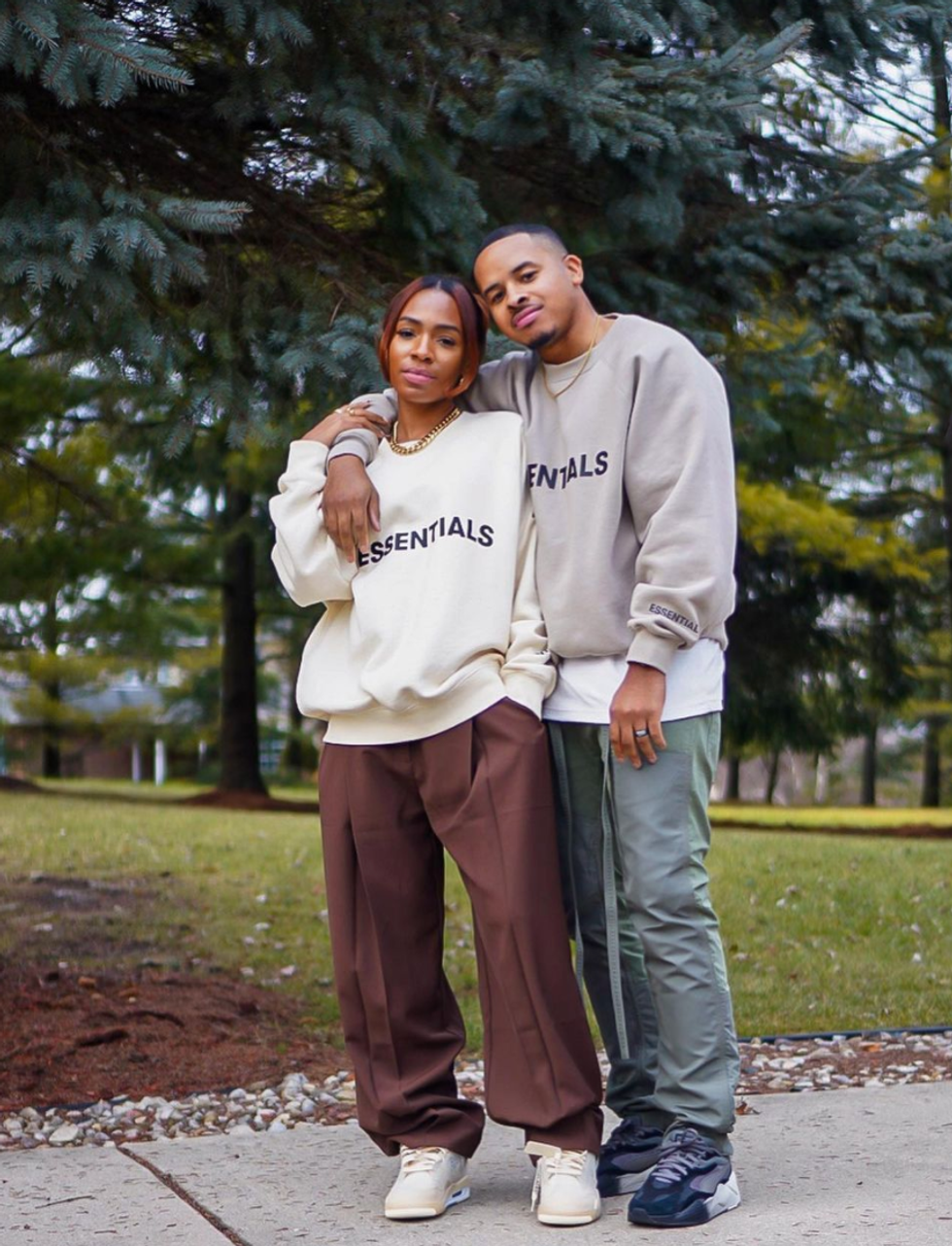
Courtesy of Vicky Logan/Instagram
On their faith-based, relationship-centered podcast, the two speak candidly about a range of topics from sex before marriage, toxic relationships, love languages, and even gender roles and submission. After 7 years of marriage, the two felt confident enough in their experiences to dish advice on their union from a place of transparency to host honest and open dialogue. "We know each other well enough to give people something of substance. This a 'we' thing, not just a 'me' thing," Vicky shares, explaining the origin of the show.
Creating as a "we" continues to add color and vibrancy to the Logans' relationship, with visual documentation being a vital part of how they keep record of their experiences together and connect with their audience. Vicky grew up with home videos and videotapes being essential in logging her childhood memories, so continuing that tradition was a natural progression for her and Cam's story. "I love documenting our relationship because I can always go back and see our memories happening on video. It keeps me grounded because I can see our progression as a couple," Vicky explains.
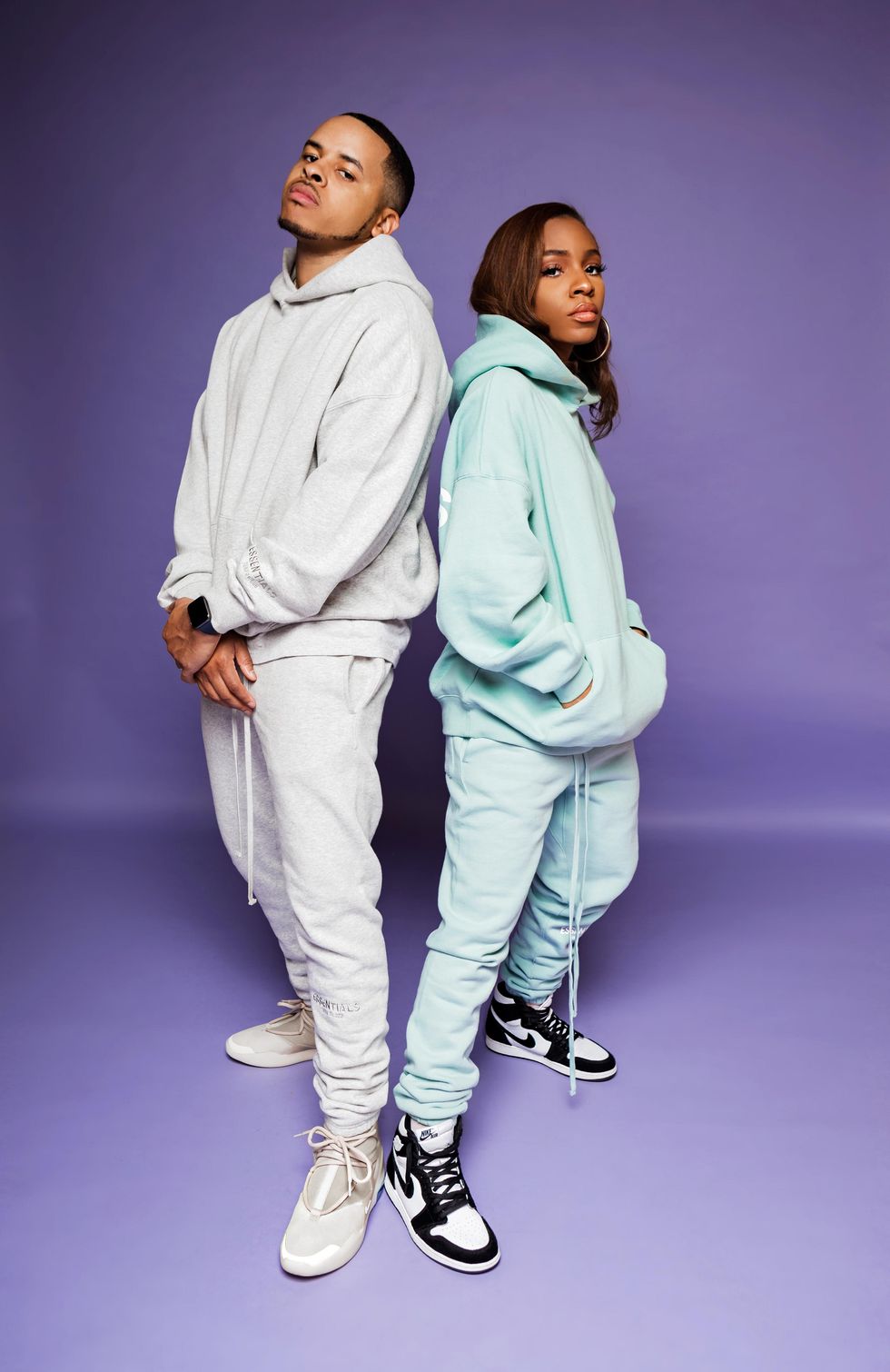
Courtesy of Vicky Logan
Documenting your life online for yourself and for the world to see comes with its own set of boundaries. For the Logans, that means staying true to their authentic selves and being present in the moments they share together. Cam expresses that who you are online should always match who you are in private. "I saw people that would vlog and become these public figures, and when they turn the cameras off, they're nothing like that. For me, in everything that I do, I want to be consistent."
Staying rooted as a content creator requires a deep level of self-awareness and routine check-ins with yourself. In fact, Vicky recalls a time early in her vlogging career where she found herself swept away in the process of creating a perfect memory, instead of participating in the moment. "When I was heavily into YouTube, I was vlogging so much, I felt like I have to go back and watch those videos to remember what happened because I wasn't present in the moment." She continues, "I was looking at my life through the lens instead of looking at it as my life. I never want to get back to that point. I try to prioritize being in the moment rather than creating content."
"When I was heavily into YouTube, I was vlogging so much, I felt like I have to go back and watch those videos to remember what happened because I wasn't present in the moment. I was looking at my life through the lens instead of looking at it as my life. I never want to get back to that point. I try to prioritize being in the moment rather than creating content."
When you've been with someone through your 20s and into your early 30s like the Logans have, evolution becomes the third wheel. Over the years, the two have seen each other grow and evolve as individuals with callings that stand alone and complement each other's purpose. Arriving at the place in a relationship where everything is truly about the we and not the me takes sacrifice, time, and the process of "dying to yourself" daily. That means pride and self-centeredness have no place. For the Logans, this required taking the time to learn how to truly love each other the way each person needs to be loved, not the way they assumed they needed to be loved. As Vicky puts it, "I think sometimes people come into relationships a little bit prideful and don't want to change."
But if the common goal is longevity, you have to forgo the "that's just the way I am" mentality. "We know that we're different people, but at the same time, we want to operate as a team," Vicky shares. "You have a partner for a reason: to help you."
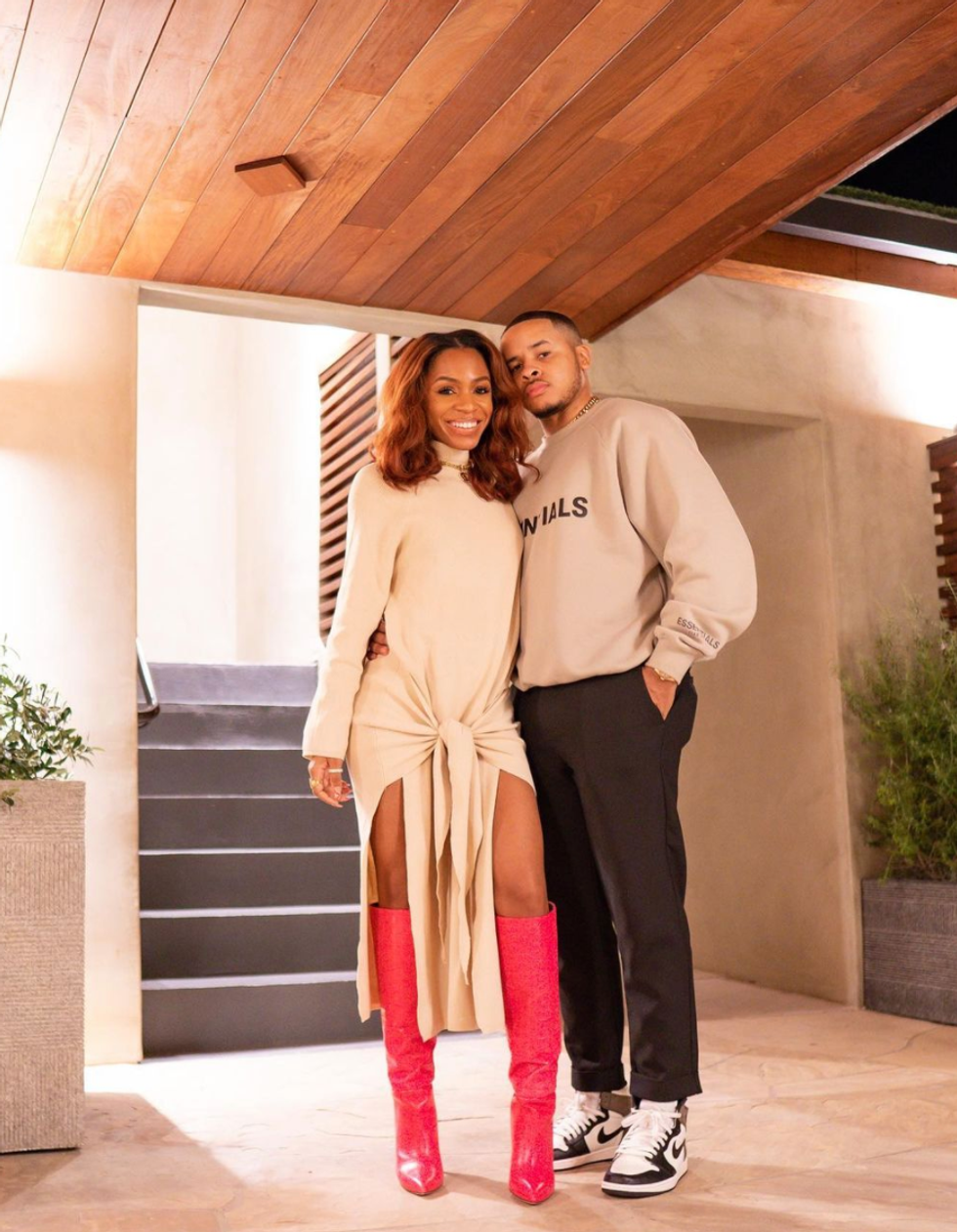
Courtesy of Vicky Logan/Instagram
If you follow the #CamToria hashtag on Instagram, you'll find that the Logans are far more than your typical "relationship goals", they're the embodiment of steadfastness. A marriage that hasn't rushed through the years or the moments that they've shared together, but has instead made the daily decision to partake in the witnessing of one another's blooming growth. "My life has changed just by being friends with Cam," Vicky reflects, "He truly loves people and I try to be like that more and more every day."
For Cam, experiencing Vicky's growth has been the greatest honor to witness as a husband, "[Vicky's] ability to literally go after her dreams... I don't know if people realize how difficult that is in a society that trains you to do what people tell you to do." He adds, "She's a boss, but remains humble and loving at the end of the day. She's constantly growing and I'm just happy to be married to her."
The freedom in having an unconventional love story is in the license it gives to a couple to tell a story that's never been told before. Although arranged marriages aren't something that's typically highlighted in the Black community, the Logans exemplify what can happen when you follow the wise counsel of your parents, while fostering the "it takes a village" adage. "I think our community could benefit from the fact that our parents are connected with solid people with solid foundations, values, and morals," Cam says. When you're building towards a future legacy, sometimes the best way to know where you're headed to by trusting the wisdom and guidance of those who have been where you're headed. Even if that turns out to be your own parents.
"I know that when we have children, that's definitely something I plan on doing," Cam says.
To stay connected with Cam and Vicky Logan, check out their new podcast Everything is We on YouTube and Spotify. And follow them on IG via @victoriouslogan and @camlogan.
Featured image courtesy of Cam and Vicky



